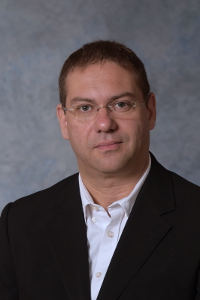 "Mechanotransduction in adipose tissues: Implications for tissue-engineering of fat"
"Mechanotransduction in adipose tissues: Implications for tissue-engineering of fat"
Amit Gefen, Tel Aviv University, Israel
Prof. Amit Gefen received the B.Sc. in Mechanical Engineering and M.Sc. and Ph.D. in Biomedical Engineering from Tel Aviv University in 1994, 1997, and 2001, respectively. During 2002-2003 he was a post-doc at the University of Pennsylvania, USA. He is currently a Full Professor with the Department of Biomedical Engineering at the Faculty of Engineering of Tel Aviv University. His research interests are in studying normal and pathological effects of biomechanical factors on the structure and function of cells, tissues and organs, with emphasis on applications in chronic wound research. In 2007-2008 he was a visiting scientist in Eindhoven University of Technology, where he developed tissue-engineered model systems to study pressure ulcers. To date, Prof. Gefen published more than 160 articles in peer-reviewed international journals, many of which are on chronic wounds and their prevention, and he has also edited several relevant books. He is now editing a book series on Mechanobiology, Tissue Engineering and Biomaterials published by Springer, and is Associate Editor and serving on Editorial Boards of several international journals, PLOS ONE, the Annals of Biomedical Engineering, the Journal of Biomechanics, Clinical Biomechanics, Medical Engineering & Physics, Computer Methods in Biomechanics and Biomedical Engineering, Journal of the Mechanical Behavior of Biomedical Materials, the Journal of Tissue Viability and the Journal of Wound Care, to mention a few. Prof. Gefen is currently the President of the European Pressure Ulcer Advisory Panel (EPUAP, www.epuap.org) and a member of the World Council of Biomechanics. In 2014 he was elected as a Fellow of the International Academy of Medical and Biological Engineering. The research of Prof. Gefen has been funded by the Israel Science Foundation, Ministry of Health, Ministry of Science, Ministry of Defense, and national and international industries.
Anath Fischer, Technion – Israel Institute of Technology, Israel.
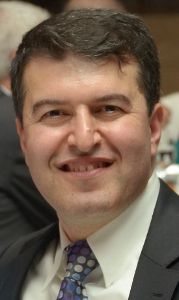 "3D Bioprinting with Live Cells for Tissue/Organ Engineering”
"3D Bioprinting with Live Cells for Tissue/Organ Engineering”
Bahattin Koc, Sabanci University, Turkey.
Bahattin Koç is Associate Professor of Manufacturing Systems and Industrial Engineering and Nanotechnology Research and Application Center (SUNUM) at the Sabancı University. He received his Ph.D. and M.S. degrees in Industrial Engineering from North Carolina State University in 2001 and 1997 respectively and his B.S. degree in Industrial Engineering from Istanbul Technical University, Istanbul, Turkey in 1993. He was an Associate Professor (Tenured) of Industrial and Systems Engineering at the University at Buffalo (UB) before joining to Sabancı University in 2010. His research interests include Tissue Engineering, 3D Bioprinting, Additive Manufacturing, Computational geometry for design and manufacturing, Nano/micro manufacturing and CAD/CAM integration. He is the recipient of Elginkan Foundation Science and Technology Award, Turkish Heart Association “Doc. Dr. Edip Kurklu” Award, “Most cited Author in Computer Aided Design” Award from Elsevier, UB STOR Inventor Award and UB Reifler Award. He has published more than 70 scientific publications (journal articles, book chapters and conference articles). Dr. Koc is an Associate Editor and a member of editorial boards of several journals in his research area. His recent research work related to 3D Organ Bioprinting was highlighted at several international and national TV channels (BBC, CNN Turk etc.) Newspapers and blogs.
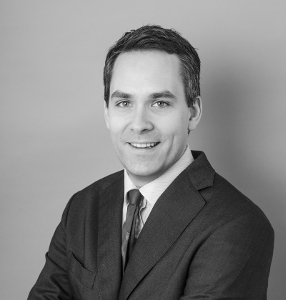 "Clinical complications of materials in orthopaedic surgery: current issues and future solutions”
"Clinical complications of materials in orthopaedic surgery: current issues and future solutions”
Chris Peach MD FRCS (Tr&Orth), Consultant Elbow and Shoulder Surgeon, Cheshire Shoulder and Elbow Clinic, UK.
Chris Peach is a Consultant Orthopaedic Surgeon who specialises in treating disorders of the shoulder and the elbow and traumatic injuries of the entire upper limb. His expertise in arthroscopic (keyhole) surgery of the shoulder and the elbow enables minimally invasive treatment of conditions affecting the shoulder and the elbow as well as reconstructive joint replacement surgery.
Chris is a Consultant at the University Hospital of South Manchester, a large teaching hospital in Manchester, UK as well as being an honorary senior lecturer, in the Faculty of Engineering and Physical Sciences at the University of Manchester.
Chris graduated as a doctor from Imperial College School of Medicine and trained as an Orthopaedic Surgeon in London, Oxford and the North West of England. He was awarded an MD from the University of London in the genetics of osteoarthritis and spent two years undertaking post-graduate research at the University of Oxford, having been awarded the Royal College of Surgeons of England Research Fellowship.
In 2013 he was awarded the British Elbow and Shoulder Society’s North American Elbow Fellowship to share and increase his experience in complex elbow surgery by collaborating with other leaders in the field at the Mayo Clinic in the United States.
His basic science research relates to finite element modeling of a subject specific shoulder, biomechanical evaluation of novel shoulder fracture implants, developing novel biodegradable fracture implants for osteoporotic bone.
His clinical research includes functional outcomes in upper limb trauma, management of infected total elbow arthroplasty, randomized clinical trial evaluating the treatment of frozen shoulder, patient reported outcomes (PROMS) following shoulder surgery.
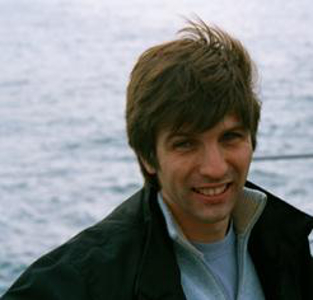 "Biomaterials supports for ex-vivo cultivation of stem cells ”
"Biomaterials supports for ex-vivo cultivation of stem cells ”
Frederico Ferreira, University of Lisbon, Portugal.
Frederico Ferreira holds a PhD in Chemical Engineering from Imperial College London and a MBA from the New University of Lisbon (UNL). He graduated in Applied Chemistry (minor in Biotechnology) in 1999 from UNL. From 2004 to 2006, he was research associate at Imperial College London in an Industrial Project with GlaxoSmithKline, and an Imperial College London’s honorary research associate from 2006 to 2010. He was a visiting researcher (July 2007) at Institut Européen des Membranes, Montpellier, and a visiting scholar (Set-Dec 2009) at Massachusetts Institute of Technology (MIT), Deshpande Center for Technological Innovation. He is an Assistant Professor at the Department of Bioengineering of Institute Superior Técnico, Universidade de Lisboa and a member of the BioEngineering Research Group at the Institute for Bioengineering and Biosciences. His current research interests are (i) tailoring materials for stem cells applications, namely mimicking the natural extracellular micro environment using nanofiber based polymeric 3D matrices and developing stimulus responsive systems for stem cell ex-vivo cultivation, (ii) developing bio-based processes for sustainable production of biofuels and added value products, and (iii) design new hybrid systems for advanced purification of pharmaceutics, namely through membrane separations. He co-authored more than 40 peer-reviewed publications, including studies that explore the cross talk between two different cell populations, the use of materials to support ex-vivo cultivation of stem cells or provide electrical stimuli. https://fenix.tecnico.ulisboa.pt/homepage/ist24812
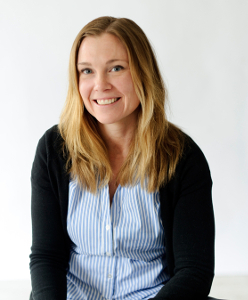 “Improving bone healing and bone ingrowth by characterizing bone quality”
“Improving bone healing and bone ingrowth by characterizing bone quality”
Hanna Isaksson, Lund University, Sweden.
Hanna Isaksson is an associate professorship at Lund University, Sweden, where she has a dual appointment in Biomedical Engineering and Orthopedics. Her biomechanics research group is focusing on functional imaging and statistical shape modeling of bone, as well as on improvement of bone quality during fracture repair and bone-implant ingrowth. She has authored over 60 peer-reviewed scientific papers. During her earlier career, her doctoral studies focusing on mechanobiological modeling of bone regeneration, at the AO Research institute, Switzerland and Eindhoven University of Technology, the Netherlands. After obtaining her Ph.D. degree in 2007, she spent three years as a post-doc at University of Eastern Finland, Kuopio, Finland, working on experimental methods to determine bone quality in metabolic bone diseases.
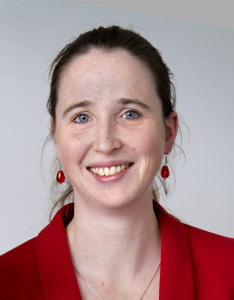 “Of models and men: recent advances in computational bone tissue engineering”
“Of models and men: recent advances in computational bone tissue engineering”
Liesbet Geris, University of Liege, Belgium.
Liesbet Geris (DOB 04.06.1979) is professor in Biomechanics and Computational Tissue Engineering at the Department of Aerospace and Mechanical Engineering at the university of Liège and part-time associate professor at the Department of Mechanical Engineering of the KU Leuven, Belgium. From the KU Leuven, she received her MSc degree in Mechanical Engineering in 2002 and her PhD degree in Engineering in 2007, both summa cum laude. In 2007 she worked as a postdoctoral researcher at the Centre of Mathematical Biology of Oxford University.
Her research interests encompass the mathematical modeling of bone regeneration during fracture healing, implant osseointegration and tissue engineering applications. The phenomena described in these mathematical models reach from the tissue level, over the cell level, down to the molecular level. She works in close collaboration with experimental and clinical researchers from the university hospitals Leuven, focusing on the development of mathematical models of impaired healing situations and the in silico design of novel treatment strategies. She is scientific coordinator of Prometheus, the skeletal tissue engineering division of the KU Leuven. Her research is financed by European, regional and university funding (up to date 3.5 M€ as PI and co-PI). In 2011 she was awarded an ERC starting grant to pursue her research.
Liesbet Geris is the author of 43 ISI indexed journal papers (h-index 17), 8 book chapters and over 80 full conference proceedings and abstracts. She is the editor of 2 Springer-Verlag books on computational modeling in tissue engineering and the modeling of biological processes and she is co-editor-in-chief of the journal ‘In Silico Cell and Tissue Science’. She has received a number of awards, including the Student Award of the European Society of Biomechanics (ESB, 2006), the Young Investigator Award of the International Federation for Medical and Biological Engineering (IFMBE, 2008) and the Taylor & Francis award for outstanding innovation in computational methods in biomechanics and biomedical engineering (2010). She is chair of the policy affairs work group of the Virtual Physiological Human Institute and member of the Young Academy of Europe and president-elect of the Young Academy of Belgium (Flanders).
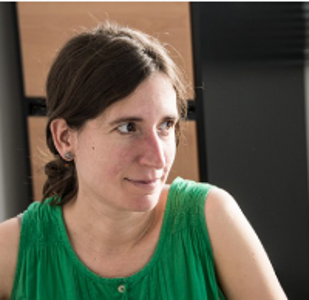 "Computational modelling of wound healing: insights to develop new skin substitute"
"Computational modelling of wound healing: insights to develop new skin substitute"
Maria José Gómez-Benito, Universidad de Zaragoza, Spain.
María José Gómez-Benito is currently Associate Professor at the Department of Mechanical Engineering, University of Zaragoza, Spain. She obtained her PhD in Computational Mechanics at the University of Zaragoza in 2005 with a thesis about the mechanobiology of fracture and healing of bone. She has conducted post-doctoral research at the Institute of Orthopaedic Research and Biomechanics in Ulm (Germany) and at Max Planck Institutes of Colloids and Interfaces in Postdam (Germany). She has authored over 25 peer-reviewed scientific papers. Her research interests are in studying Mechanobiology of bone and wound healing and the growth plate. She has been focused mainly on mathematical models and their computational implementation from the point of view of Continuum Mechanics
“Healthy Aging: the role of biomanufacturing”
Paulo Bártolo, Manchester Biomanufacturing Centre; Institute of Biotechnology; School of Mechanical, Aerospace and Civil Engineering; University of Manchester, UK.
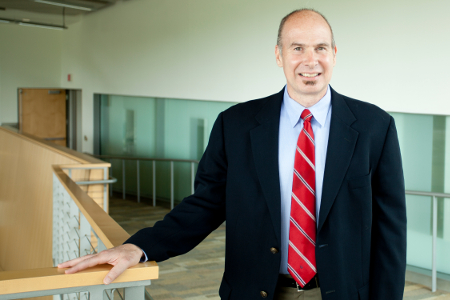 "Design Control and 3D printing for Tissue Engineering "
"Design Control and 3D printing for Tissue Engineering "
Scott Hollister, University of Michigan, USA.
Dr. Hollister is a Professor of Biomedical Engineering and Mechanical Engineering at the University of Michigan, where he directs the Scaffold Tissue Engineering Group (STEG). Dr. Hollister and his collaborators have designed and developed a variety of medical devices utilizing 3D printing, an area in which he has worked for 17 years, publishing his first paper in 1997. He and his colleagues first developed an approach for laser sintering for polycaprolactone in 2004. His general research focuses on the design, fabrication and evaluation of biomaterial platform systems for tissue reconstruction. He is a fellow of the American Institute of Biological Engineering. His work on a bioresorbable tracheal splint along with Dr. Glenn Green was published in the New England Journal of Medicine in 2013 and subsequently was given a Popular Mechanics 2013 Breakthrough Innovation Award. This implantation of this 3D printed device to save the lives of three children has also been featured on the Today Show, the New Yorker, USA Today, NPR, Time magazine, Nature, Science, and Popular Mechanics among other media.
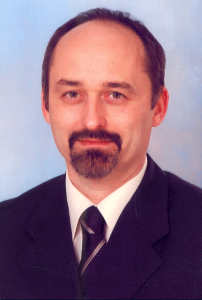 "Low temperature 3D printing of drug loaded bioceramic scaffolds and implants"
"Low temperature 3D printing of drug loaded bioceramic scaffolds and implants"
Uwe Gbureck, University of Wurzburg, Germany.
Uwe Gbureck is a professor for biomaterials in the Department or Functional Materials in Medicine and Dentistry, University of Würzburg. He is a graduated chemist and earned a PhD degree in chemistry from the University of Würzburg in 1999. He is author/coauthor on more than 140 scientific papers and 4 patents concerning the fabrication of 3D structured bioceramic and biopolymer composites. His research interests are focused on the chemistry and material properties of mineral biocements based on calcium and magnesium phosphate chemistry, the use of such cement in rapid prototyping applications, as well as drug delivery systems based on structured inorganic materials.

